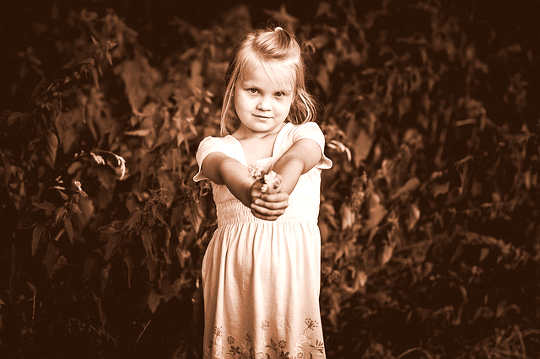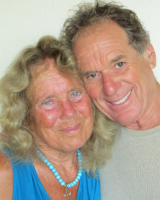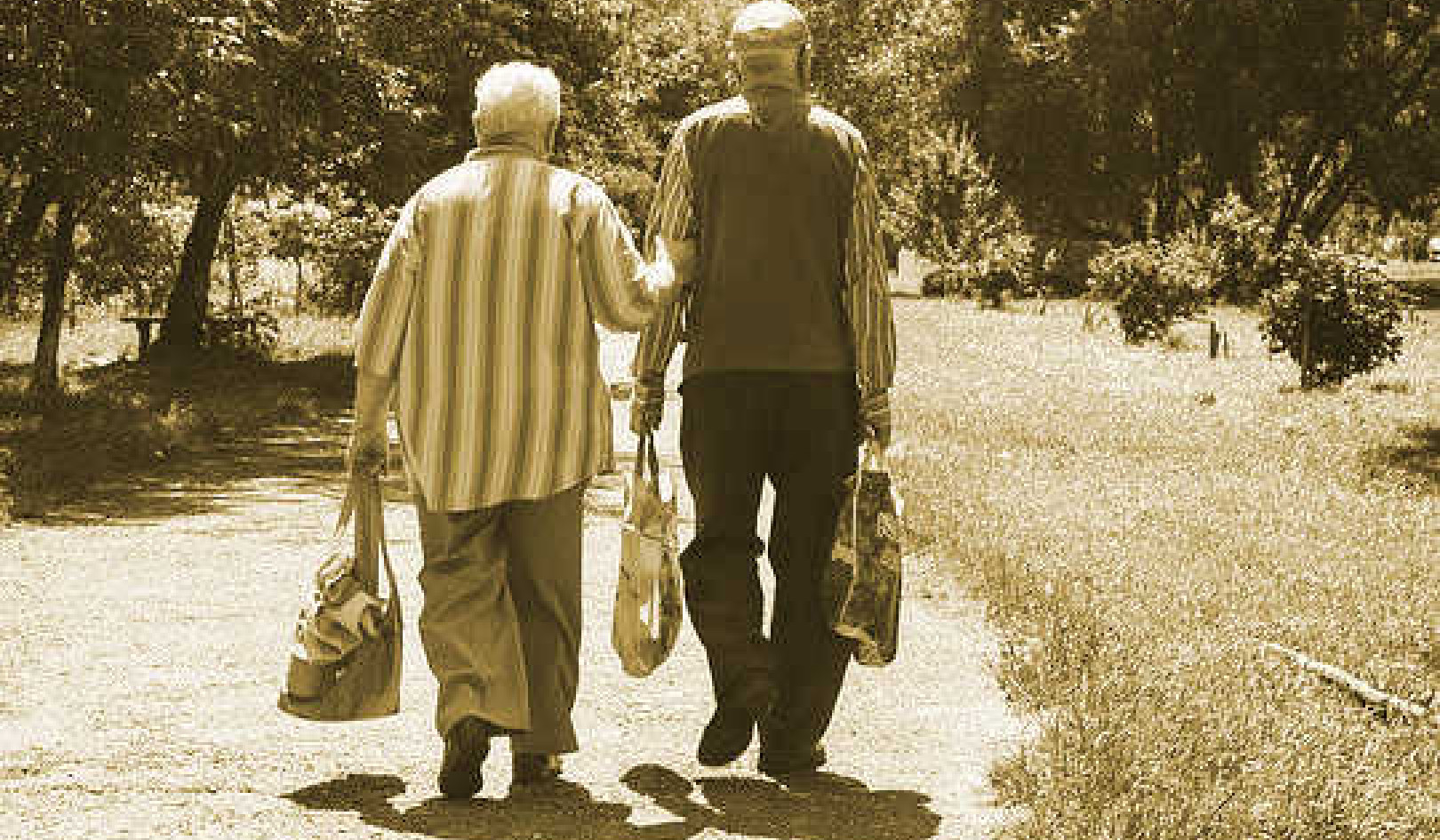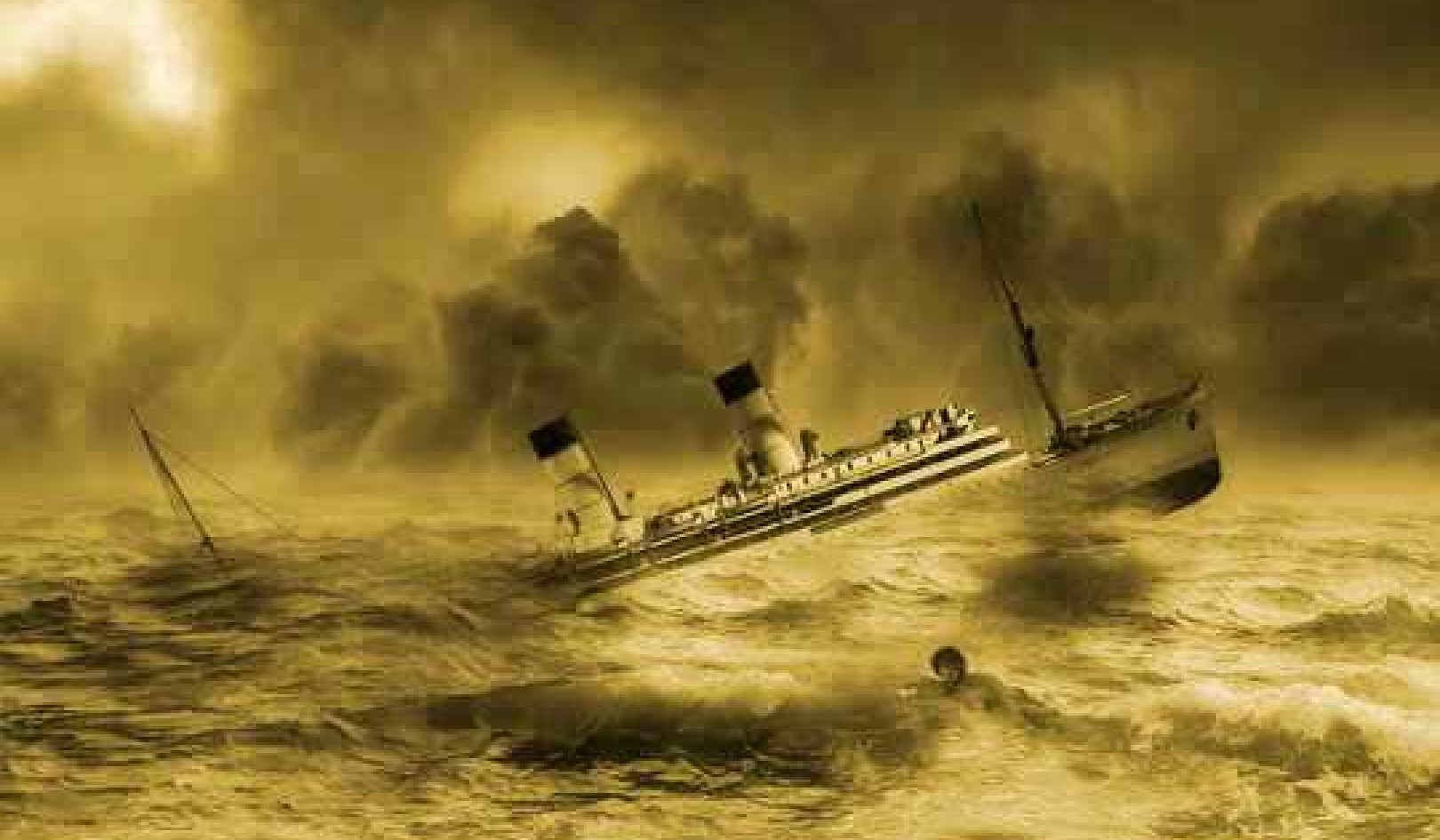
Joyce and I love watching our two-year-old grandson, Owen, just as much as we love spending time with our first grandson, almost eight-year-old Skye. When they were new babies, their dependence was obvious. Because Owen is younger, I will use him as an example. He would not have survived for long without the nurturing and protection of our daughter, Mira, and her now-husband, Ryan. (They got married here in our home last month!)
This is the first stage of life. Dependence. Clear and simple, without even a hint of independence. Every baby is born into this world completely dependent. No question.
Then came one of Owen’s first sentences, “Owee can do.” And along with that sentence came the assertion of his independence: feeding himself with a spoon, climbing up on the couch “by myself,” building something with his blocks, or drinking from his spill-proof cup without anyone’s help.
Pseudo-Independence
I’m calling this second stage of life Pseudo-Independence. It gives every appearance of independence. But is it true independence? It’s the ego’s attempt to mimic autonomy. But is it true autonomy? I have to say no.
True, it’s a great feeling of power for Owen to do more and more by himself. There’s a pride of accomplishment, and a big smile on his face when he finishes climbing a play structure at the park near their home in Santa Cruz. But how long could he stay alive without the love and care of guardians? Not long. So, yes, there is some level of independence, but it’s not complete independence.
From Pseudo-Independence to the Illusion of Independence
Now fast forward some decades to you and me. We’re no longer children. We’ve learned much about caring for ourselves. Some of us can even spend extended times in the wilderness taking care of ourselves just fine. I’m one of them.
Probably since I was an older child, I prided myself in all the things I could do, in my illusion of independence. But it didn’t stop with physical things. In my pseudo-independence, I ventured into emotional regions, and declared my lack of need for love. For those of you who have read our books, you know the story.
I fell in love with Joyce at the early age of eighteen, but couldn’t admit to my need for her until my mid-twenties. I foolishly tried to prove my independence by having a brief affair with another woman. But Joyce’s leaving me shattered that illusion. I realized for the first time, at age twenty-five, that I needed Joyce’s love. It was the first crack in the armor-like illusion of independence. I began to understand my pseudo-independence.
Conscious Dependence
Enter the third and final stage of life, Conscious Dependence.
The first two stages of life, dependence and pseudo-independence, both constitute immaturity. The dependence of a baby is of course an innocent immaturity. The second, pseudo-independence, lacks the innocence but still represents immaturity. The final stage of life, conscious dependence, represents spiritual maturity.
The more physically accomplished I have gotten about taking care of myself, the harder it is to realize my spiritual dependence. This is true for most people. A few summers ago, I got stranded on Lake Tahoe on a solo adventure in our sailboat. There wasn’t even a hint of wind, and the outboard motor wouldn’t start.
I pulled and pulled on the starter cord for hours, trying all the tricks I knew. But nothing happened.
It was only when I reached complete physical exhaustion and muscle cramping that I had the thought to pray for help. I earnestly and humbly asked the angels to help me. It took only a few minutes to do this. When I was done, I pulled one more time on the starter cord and the motor instantly roared to life. And that’s what the transition from pseudo-independence to conscious dependence looks like. It can be grueling – or it can be quick and painless
I now view my personal competence as a liability just as much as an asset. If that was Joyce instead of me stranded in the middle of vast Lake Tahoe, she would have prayed to God right away for help. Of course, she would never have gone by herself in the first place.
Choosing to Depend on Divine Guidance
My goal is to feel my dependence more and more, physically, emotionally and spiritually. Every morning, Joyce and I acknowledge our complete dependence on our spiritual Source, God, our Higher Power. We give thanks for the divine guidance that helps us every minute of every day.
We ask for a deepening of our trust in God’s plan, rather than depending on our own narrow understanding based on our desires. We desire that more people read our books, including our new ones, To Really Love a Man and To Really Love a Woman. It can be hard to trust in a divine plan bigger than our own, a larger plan that has a smaller readership, and sometimes smaller workshops right now for us. We ask every day to be of service. We need to trust that helping lots of people is not better than helping a few people.
Now that I understand my complete dependence upon the Divine, I can relax more into my need for other people as well. God is not some being up in the sky somewhere. He/She is a magnificent presence in everything and everyone. And for me, the person who represents an instrument of divine love, the person who most helps me feel my conscious dependence, is Joyce.
We just celebrated our 50th wedding anniversary last month. In my pseudo-independent phase, I pretended that I didn’t need her love. Now I know the truth. I need her deeply. She is a divine gift in my life. I need her so much that the thought of her dying before me is actually a scary thought. It’s perhaps my greatest vulnerability right now, even though I understand my highest dependence is upon God, the divine essence within Joyce, the soul that can never die.
I encourage you to realize the freedom that comes with conscious dependence. We are powerful, capable adults. But we are also like small children with divine parents who care for us perfectly.
Book by this Author
To Really Love a Woman
by Barry and Joyce Vissell.
 How does a woman really need to be loved? How can her partner help to bring out her deepest passion, her sensuality, her creativity, her dreams, her joy, and at the same time allow her to feel safe, accepted and appreciated? This book gives tools to the readers to more deeply honor their partners.
How does a woman really need to be loved? How can her partner help to bring out her deepest passion, her sensuality, her creativity, her dreams, her joy, and at the same time allow her to feel safe, accepted and appreciated? This book gives tools to the readers to more deeply honor their partners.
Click here for more info and/or to order this book
About the Author(s)
 Joyce & Barry Vissell, a nurse/therapist and psychiatrist couple since 1964, are counselors, near Santa Cruz CA, who are passionate about conscious relationship and personal-spiritual growth. They are the authors of 10 books, their latest being A Couple of Miracles: One Couple, More Than a Few Miracles.
Joyce & Barry Vissell, a nurse/therapist and psychiatrist couple since 1964, are counselors, near Santa Cruz CA, who are passionate about conscious relationship and personal-spiritual growth. They are the authors of 10 books, their latest being A Couple of Miracles: One Couple, More Than a Few Miracles.
Visit their website at SharedHeart.org for their free weekly 10–15-minute inspirational videos, inspiring past articles on many topics about relationship and living from the heart, or to book a counseling session on-line or in person.
More books by these authors
at

Thanks for visiting InnerSelf.com, where there are 20,000+ life-altering articles promoting "New Attitudes and New Possibilities." All articles are translated into 30+ languages. Subscribe to InnerSelf Magazine, published weekly, and Marie T Russell's Daily Inspiration. InnerSelf Magazine has been published since 1985.

Thanks for visiting InnerSelf.com, where there are 20,000+ life-altering articles promoting "New Attitudes and New Possibilities." All articles are translated into 30+ languages. Subscribe to InnerSelf Magazine, published weekly, and Marie T Russell's Daily Inspiration. InnerSelf Magazine has been published since 1985.



























